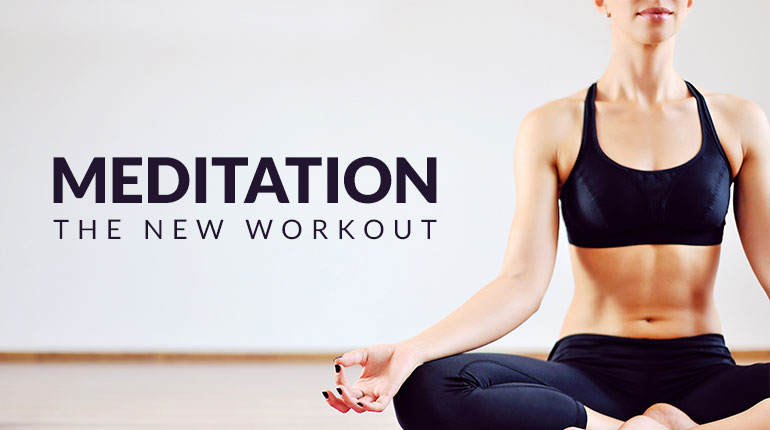Control your cortisol levels
We give one day of the week to the chest, one day to legs, one day to arms, one day to abs and the other to the back. But how much time do we give to our mind?
Yes, the mind is the most important and the strongest muscle in your body. This mind is what often helps us to build other muscles too. It’s when you can control your mind you can control every muscle of your body. So it is equally important for you to work out your mind and treat it in a similar way to the other muscles.
Well, the catch here is that we are always working out our brain. Doesn't matter whether we are studying or sleeping, our brain keeps on working. We are always in a constant effort to control our thoughts. And this constant effort puts the stress on our brains.
In contrast, meditation is the time when we leave our brain in a relaxed state. This is a time when we clear our thoughts not in a forceful manner, but in a way that the brain welcomes this calmness and peace and feels rejuvenated.
Mind-wandering:
This meditation is not exactly a workout but rather a rest. The irony is that to rest the mind, we need to work hard.
'Mind wandering’ is the tendency of the mind to ramble its thoughts and not remain constant for a long period of time. We have all experienced this.
Just when you try to calm your mind, just when you try to actually control it and stop your thoughts, it starts wandering from one thought to another, going from past to future and back to past again. But never in the present.
Being in the present is what is observed while we try to meditate. This mind-wandering is definitely not in our interests as it will take your brain out of your control. It is just like a withdrawal symptom, often observed when we try treating ourselves from the addiction of overthinking and stressful lifestyles.
It requires you to understand yourself:
Just as in your workout you assess yourself, you correct yourself and you change yourself, in meditation too you understand yourself and change yourself for better. One has to understand himself, his soul is his body and his mind is his heart. Meditation is one workout that can change your mind and this mind can well compliment your every muscle, every workout you do. After all, which activity doesn’t need the assistance and presence of the mind?
This strengthens your emotive muscles too:
Recent scientific studies which involve the use of instruments such as fMRI and EEG, (used to observe the physiology and structure of the brain) has revealed that practicing meditation regularly can lead to a reduction of negative emotions. It does this by not completely eliminating negative emotions (that would turn into a robot), but by increasing your resilience and teaching you effective stress management. Thus it strengthens out emotional muscles, preparing them for any negative experience life throws at us.
The University of California, Berkley defines mindfulness as:
"Maintaining a moment-by-moment awareness of our thoughts, feelings, bodily sensations, and the surrounding environment."
Research findings published in the European Journal of Social Psychology clearly reveals that people who practice meditation can not only decrease the negative emotions in themselves but in their peer group too.
Many religious proponents also claim that meditation boosts the immune system, improves attention, memory and increase the density of grey matter in the brain.
Meditation is not just a practice but a workout. This is something we should do daily.
While traditional workout strengthens us physically and helps build body muscles, the meditative workout strengthens us emotionally, psychologically and socially.
Start today. Don’t let your mind control you. You are in control.
 India (INR)
India (INR)
 UAE (AED)
UAE (AED)
 Store Locator
Store Locator



-thumb.jpg)
-thumb.jpg)
-thumb.jpg)
-thumb.jpg)
-thumb.jpg)
-thumb.jpg)
-thumb.jpg)
-thumb.jpg)
-thumb.jpg)
-thumb.jpg)